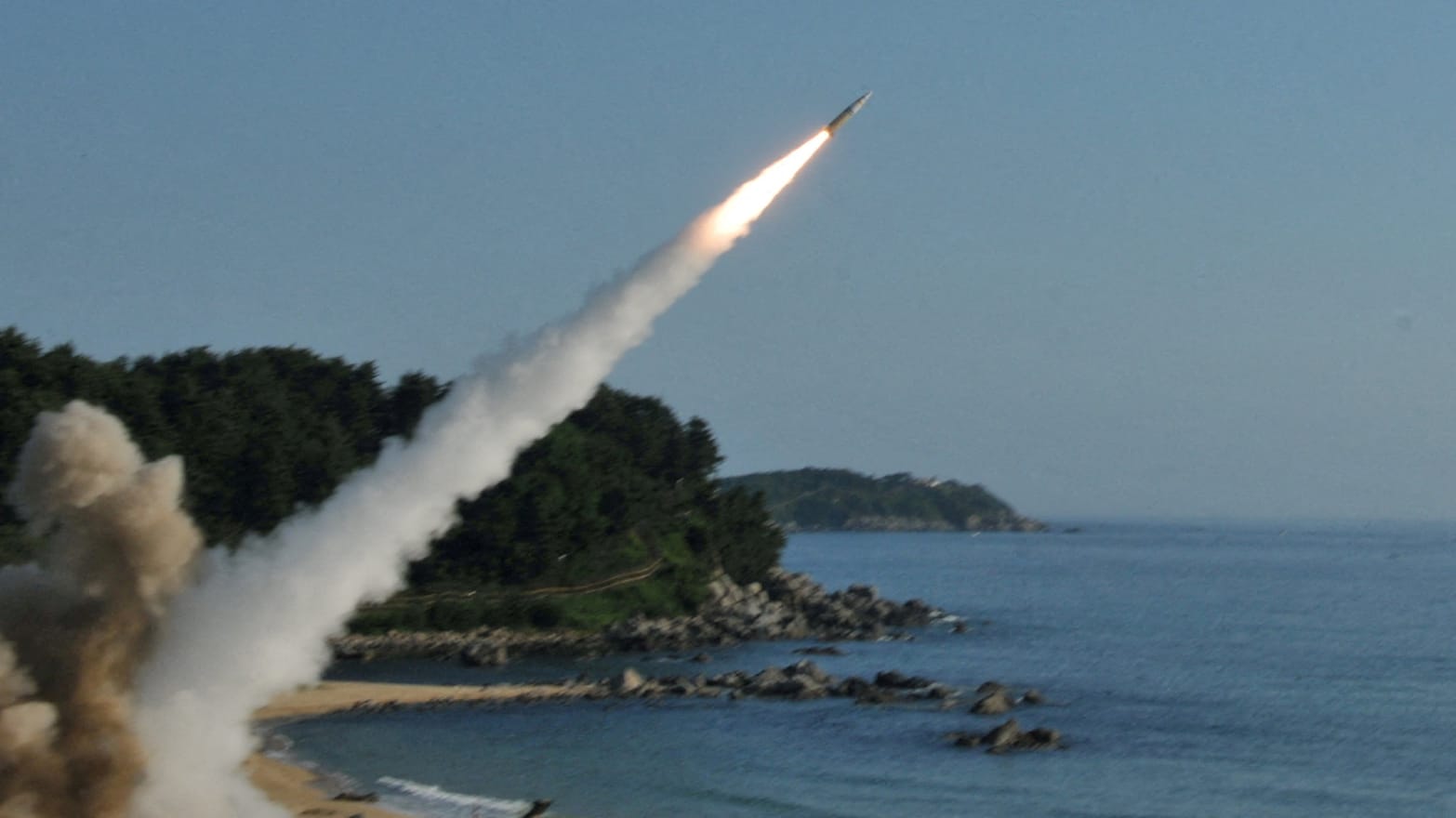The Biden administration is nearing a decision to send long-range munitions to Ukraine known as Army Tactical Missile System (ATACMS) that could give Ukraine an edge in the fight against Russia’s invasion, according to U.S. officials.
President Joe Biden has told Ukrainian President Volodymyr Zelensky that Washington will be sending a small number of long-range missiles to Ukraine, NBC News reported Friday. Senior national security officials have also been discussing whether to send the ATACMS missiles armed with cluster bomblets instead of a single warhead in recent days, according to The Washington Post.
ATACMS, which can fire about 190 miles, could provide Ukraine the firepower it needs to reach important logistics, stockpiles, command and control centers, and other Russian targets far inside Russian territory.
The news comes at a pivotal moment for Kyiv, as Ukraine’s military has opened up a new line of attack against Crimea, the peninsula which Russia illegally annexed in 2014 and has occupied ever since. Crimea has been serving as a key logistics hub for Russia during the war.
Zelensky has said that taking back Crimea—and kicking the Russians out—is a non-negotiable for Ukrainian victory in the war.
Some U.S. officials, however, have viewed efforts to take back Crimea as a potential nuclear red line for Putin and have feared reprisal if Ukraine does indeed work to kick Russians out of the territory, as The Daily Beast reported. A top official in Kyiv told The Daily Beast she was personally receiving warnings from western officials in Europe to pump the brakes on any efforts to reclaim Crimea earlier this year.
But Ukraine has not let go of the goal.
Biden has skirted around the issue of sending ATACMS to help Ukraine achieve decisive victories against Russia for months now, refusing multiple requests from Ukraine in recent months. Lawmakers on Capitol Hill began waging a pressure campaign last year to get the Biden administration to send the ATACMS as well.
Some remained concerned about provoking Russia by providing the longer-range capability, while some lawmakers raised concerns that the United States didn’t have enough information about Ukraine’s military operations.
Since American stocks of ATACMS are limited, lawmakers have also raised concerns that sending the missiles to Ukraine means pulling on U.S. supplies, raising questions about replacing them and U.S. military readiness.
The Biden administration's official stance on ATACMS has softened over the past year. U.S. National Security Advisor Jake Sullivan noted as recently as July that sending ATACMS could lead to World War III. This year, he admitted it was a possibility.
Ukraine has said it will not hit targets inside Russia proper, but rather will focus on targets inside occupied territory in Ukraine.
In Crimea, ATACMS might provide a more reliable option for striking the Kerch bridge, since ATACMS are ground-launched, while Storm Shadows are air-launched, according to an analysis from the Foundation for Defense of Democracies
Despite some concerns in Washington about targeting Crimea, which Russian President Vladimir Putin views as a prized possession, the Pentagon has admitted in recent months that going after Russian targets—including those on sovereign Ukrainian territory like the Kerch bridge to Crimea—are fair game.
“Russian forces' capabilities and logistics nodes within Ukraine are absolutely fair targets,” a senior defense official told reporters in July. “There aren't any preclusions that I'm aware of about the Ukrainians fighting on their sovereign territory against Russia.”
It’s not yet clear that the Biden administration has made a final decision on ATACMS. The United States announced an additional $325 million arms package for Ukraine while Zelensky visited Washington this week, which did not include the long-range missiles.
But it wouldn't be the first time the White House changed its tune on sending certain weapons to Ukraine. In previous instances, the U.S. has been reluctant to send Ukraine other military aid such as Stinger anti-aircraft missiles or High Mobility Artillery Rocket System (HIMARS), only to give in later.
And Zelensky knows that wiggle room is there.
“The ATACMS… I think he can change this page and this war. Once he did it with the HIMARS,” Zelensky said in an interview on CNN this month, adding he hopes to receive the missiles this fall. “About the ATACMS, I will speak with President Biden again… we are moving.”

